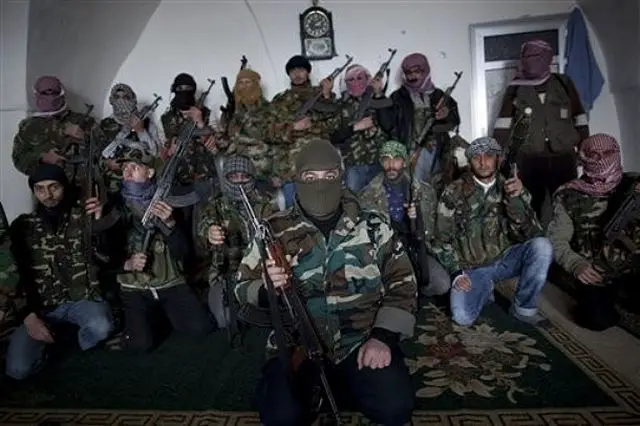"We have received information
that in Libya, with the support of the authorities, there is a special
training center for the Syrian revolutionaries and people are sent to
Syria to attack the legal government," Churkin said.
"This is, according to international law, completely unacceptable,"
the Russian ambassador told the 15-nation council. "Furthermore,
this kind of activity is undermining the efforts to maintain stability
in the Middle East region."
Libyan Prime Minister Abdurrahim El-Keib was present at the council
meeting, which started here on Wednesday afternoon.
"Taken into consideration the fact that al-Qaeda is active in the
territory of Syria, a question arises: Is there a chance that an export
of revolution could become an export of terrorism?" Churkin said.
The new Libyan authorities should concentrate on the domestic problems
of the North African country, rather than training Syrian rebels who
are battling the Syrian government forces, Churkin said.
Last month, Libya, one of the first foreign countries to recognize the
Syrian opposition -- the Syrian National Council -- as the legitimate
authority of Syria in October last year, said that it would donate 100
million U.S. dollars in humanitarian aid to the Syrian opposition and
allow them to open an office in its capital of Tripoli.
The Syrian government has repeatedly accused some Arab and Western countries
of tunneling weapons to the armed groups in Syria in addition to rendering
financial assistance to them. It said in December 2011 that "armed
terrorist groups" had killed more than 2,000 army and security
personnel.
The United Nations said recently that "well over" 7,500 people
have died in Syria's violence since March last year.
The nearly one-year-old crisis has started peacefully but protesters
have begun to take up arms, citing the alleged tough crackdown by Syria's
army and security apparatus.
Countries, such as Russia and China, have maintained that political
solution is the best option to the Syrian crisis, warning against any
foreign intervention of Syria's internal affairs.























